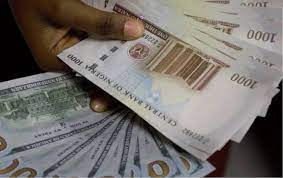As Nigeria’s debt profile increases, concerns are rising that the central bank is lending more to the government than the country can afford. Blessing Anaro reports.
MPC’s warning
In January this year, the Central Bank of Nigeria (CBN’s) own Monetary Policy Committee (MPC) warned that Nigeria’s debt burden was fast approaching the pre-2005 Paris Club level.
Paris Club debt relief
The 2005 Paris Club debt relief remains a milestone: former president Olusegun Obasanjo and then finance minister Ngozi Okonjo-Iweala argued that Nigeria had been unfairly categorised by the World Bank as not eligible for debt relief. They convinced the creditors to write off $18bn of debt, reducing Nigeria’s $30bn debt stock by more than half.
At the time there were high hopes that Nigeria would avoid such levels of debt in the future. The debt relief was designed to free up the Obasanjo administration to pursue economic reforms and the fight against corruption, avoiding such levels of debt in the future.
DMO figures
Figures from the Debt management Office (DMO) show that on 31 December 2018 Nigeria’s debt profile was N24.387 trillion ($67.65 billion) up by 12.25 per cent from 2017’s N21.725 trillion. This went into financing the budget deficit, funding physical infrastructure and more.
According to reports, CBN lending to the federal government reached N8.1 trillion over the past four years. In 2017, the CBN’s overdraft to the federal government was N3.1 trillionThat figure almost doubled in 2018 to a whopping N5.42 trillion.
Consistent borrowing
The consistent borrowing is due to Nigeria’s ambitious budget over the past couple of years. The petrol-dependent economy’s 2019 budget is benchmarked on the oil price being $60 per barrel and a daily oil production capacity of 2.3 million barrels per day (bpd). Production did not exceed 1.9 million bpd in the preceding year.
At the time of the Paris Club debt relief Nigeria had $34 billion in oil revenue reserves, which enabled it to put money on the table to get the deal signed. In March 2019 the Excess Crude Account stood at only $183 million.
The federal government’s appetite for taking on more debt has led commercial banks to cut loaning to the private sector, preferring to instead take up the high-yielding and more stable government securities.
In May 2019, a Bloomberg report analysing data from the Central Bank of Nigeria (CBN) showed that “net domestic credit to the government surged 64 per cent in the first four months of this year on an annualised basis, versus 9.6 per cent for the private sector”.
CBN’s task
In all of this, Nigeria’s central bank has been multitasking with a raft of programmes to try to stimulate the economy:
The Anchor Borrowers’ Programme is one of its flagship schemes – and its most popular. In November 2018, it claimed to have created 500,000 jobs as well adding two million tonnes of rice to the nationwide supply.
In June 2019, the bank announced it will start policing the smuggling of products on its list of restricted items into the country. CBN governor Godwin Emefiele told those present at a Lagos forum that the bank would “use the instrumentality of being the regulator for the banking system” to track down all those involved in what it calls “economic sabotage”.
NIRSAL
Under its Nigeria Incentive-Based Risk Sharing System for Agricultural Lending (NIRSAL), the CBN has been disbursing loans cumulatively worth about N75 billion in conjunction with the federal Ministry of Agriculture and Rural Development.
Other examples include The Nigeria Electricity Market Stabilisation Facility (NEMSF), the Non-oil Export Stimulation Facility (ESF) and Entrepreneurship Development Centres (EDCs).
Beyond that, it has also been heavily financing Nigeria’s federal budget deficits, plugging the gaps left open by an ambitious spending plan from the presidency.
The implication is that the CBN will keep printing currency to keep the federal government afloat. In September 2017 respected economist Doyin Salami, a member of the CBN’s aforementioned MPR committee, described the apex bank as acting like a “piggy bank” for the government.



